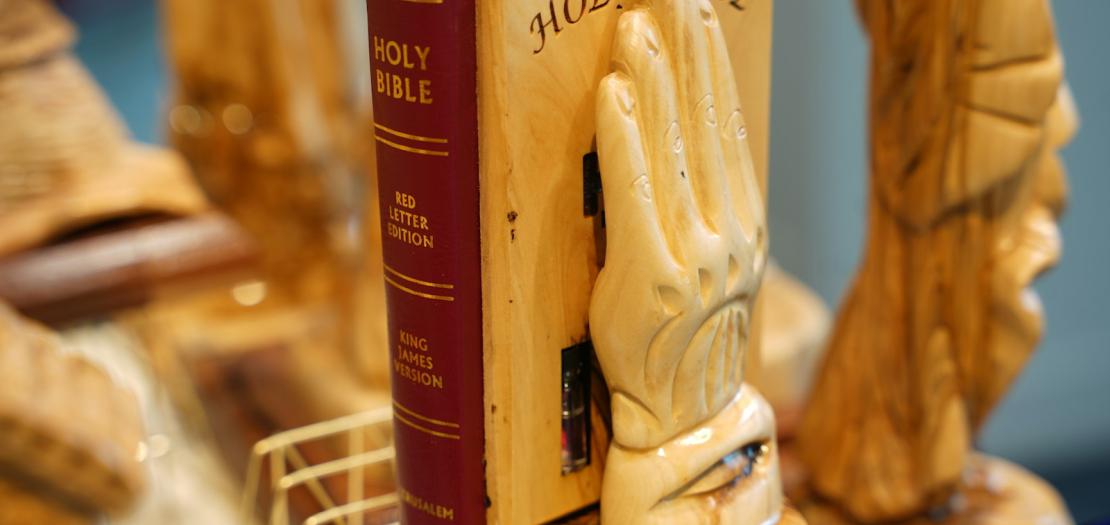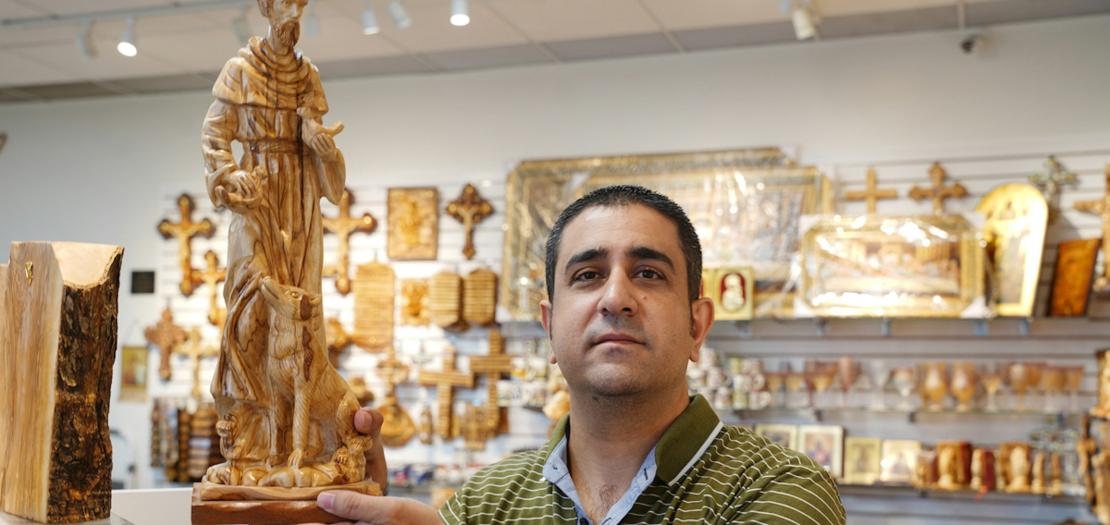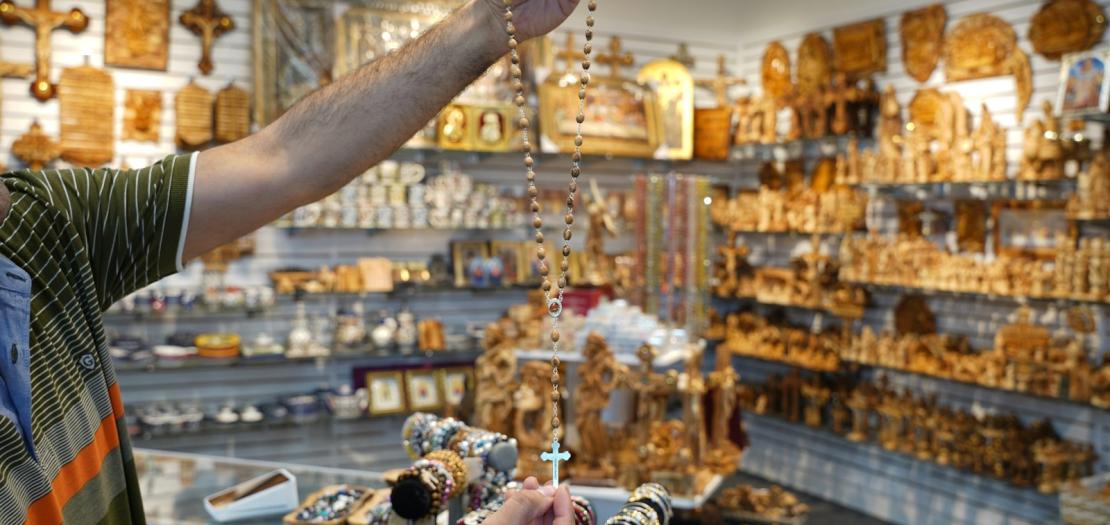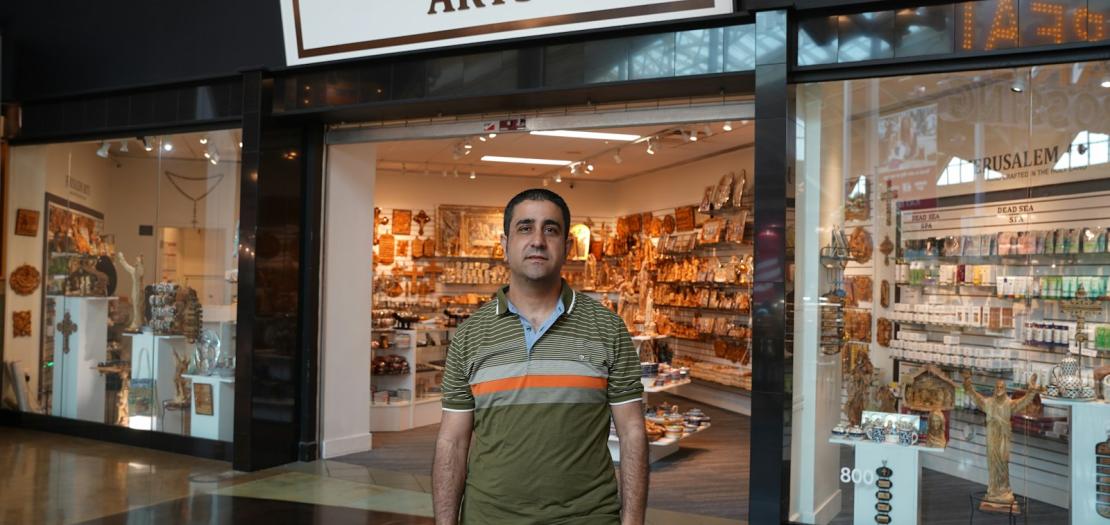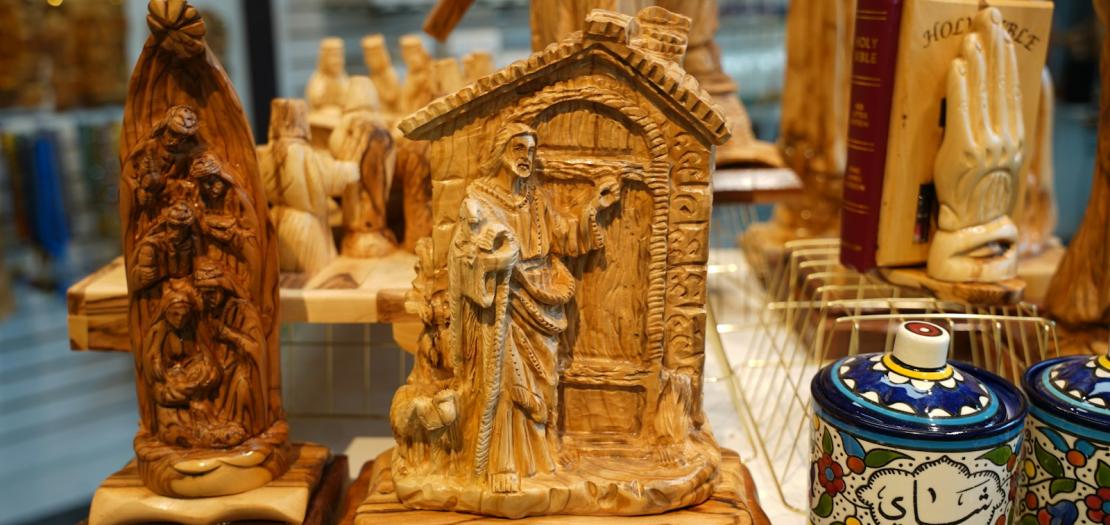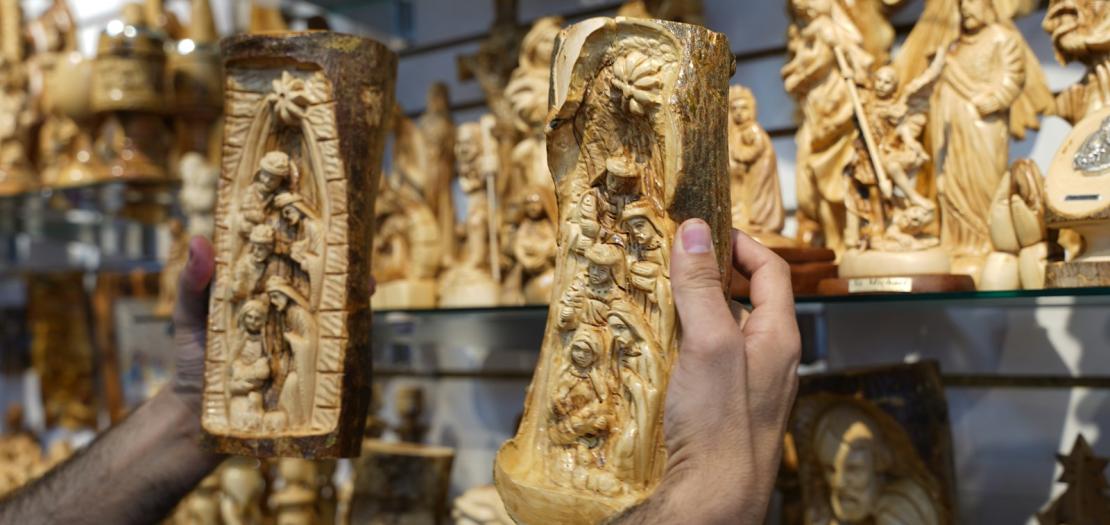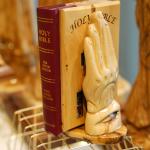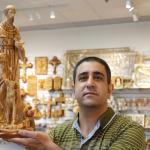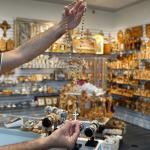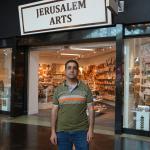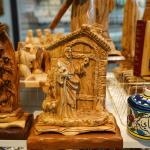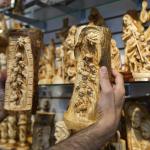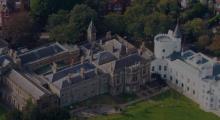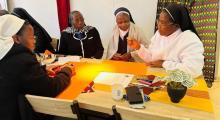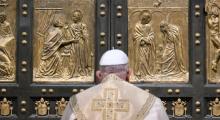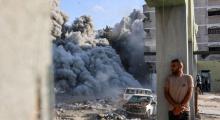Issued by the Catholic Center for Studies and Media - Jordan. Editor-in-chief Fr. Rif'at Bader - موقع أبونا abouna.org
The outbreak of war in Gaza in October 2023 has led to widespread causalities and devastation. Calls for a ceasefire and peace have remained unanswered as the world watches in horror.
On the periphery of the conflict are a small set of Christian families living in Bethlehem and surrounding villages in the West Bank.
Bethlehem normally sees a rush of tourists during Christmas and Easter, largely Christians eager to pray at the very site where Jesus was born and where he and his apostles walked the earth.
Before the war, economic opportunities were limited in the West Bank — now it's down to a trickle for those living in the Holy Land, where the economy depends heavily on the influx of pilgrims.
That's why a storefront at the Great Lakes Crossing Outlet Mall in Auburn Hills, 5,983 miles away from Bethlehem, is making all the difference in the world.
“This is our income to the Christian people in the Holy Land,” Husam Khair, owner of Jerusalem Arts at the Great Lakes Crossing Outlets in Auburn Hills, told Detroit Catholic.
“The products we sell here are made from the olive trees from Bethlehem. We’ve had the trees for 2,000 years, and we trim the branches of the trees twice a year and carve items we sell in support of Christian families in Bethlehem.”
Khair, who is Orthodox, and his wife, Wiem, who is Catholic, hail from the Shepherds’ Field, an area just outside of Bethlehem populated by some of the oldest Christian communities in the world.
Bethlehem and its surrounding villages have a population of around 160,000, of which 30 percent are Greek Catholic and Orthodox Christians.
Khair’s family is one of 52 in the Shepherds’ Field area that make artisan, hand-crafted olive wood items that are sold around the world and now from Khair’s store.
The couple moved to the United States six years ago and started selling olive wood products out of a small kiosk at Great Lakes Crossing Outlets before opening the Jerusalem Arts storefront on May 5, 2023.
The store is stocked with various wood-carved items depicting saints and holy images, along with ceramic items from Hebron City and sand and salts from the Dead Sea.
“All of our items come from the Holy Land,” Khair said. “Our family is part of a group of Christian families in Bethlehem who make these items. If you come to Bethlehem, the Holy Land, you will see this professional work done by the local Christian population.
“In Bethlehem, the only source of income is tourism and income from pilgrims coming to visit the holy places,” Khair explained. “What we do, the Christian people, we carve products from the olive wood from the olive trees.”
Popular items include rosaries, Nativity scenes and crosses, each item with its own distinctive features and coloring, as they are all hand-made and come from various cuts and stains of wood.
“The olive trees are very old; we never cut the trees down,” Khair said. “We trim the trees and then take the wood and treat it — it takes about six months to treat the wood to get it ready for carving. If you look at our products, you won’t find two pieces exactly the same, because the olive wood comes in different colors and details, all carved by hand. It takes a lot of time for the artist to make the wood in different styles, get all the details, making the faces of images — that’s the most difficult part.”
Khair didn’t originally intend to work in retail and sales. He’s an architect-engineer by trade, and he studied in Lviv, Ukraine, for seven years to earn a Master’s in Architectural Engineering.
But the economic situation that has driven many native Christians away from the area caused him and his wife to come to Michigan to support their families back home.
“We don’t have work in Bethlehem. We have a difficult situation in the Holy Land; everyone knows that,” Khair said. “We are praying for peace, for the love to come, and to stop the emigration of the Christian people. Ten years ago, we were the majority, but now, Christians are only 30 per cent in Bethlehem, and in the Holy Land, it’s just 1 per cent Christian. The mission, our hope, is to have Christians stay in Bethlehem.”
The current Israel-Hamas war has exacerbated the economic hardships in the region, making Jerusalem Arts’ mission all the more important. If people can’t come to Bethlehem, they can at least come to Khair’s store and buy a little piece of Bethlehem.
“This Christmas and Easter, nobody comes to Bethlehem and Jerusalem,” Khair said. “If there are no tourists, no pilgrimages to those areas, there is no life, there is nothing. You can’t tell people how they are going to make a living; it’s a very hard time. What we do is try to sell our items, not just here, but online. We have priests from all over the world buying our items, and now our store in Michigan.”
Jerusalem Arts is located near the food court at Great Lakes Crossing Outlets, in District 8 of the mall. The store is open from 10 a.m. to 9 p.m., Monday through Saturday, and 11:00am to 6:00pm on Sunday.
In an age of online shopping — including Jerusalem Arts’ online store — a brick-and-mortar retail store in a suburban shopping mall might seem old-school, even quaint. But Jerusalem Arts is more than a store, Khair says; it’s a mission.
“First of all, our mission is to share our faith,” Khair said, “to share Jesus Christ, our God, who said if you have the faith like a mustard seed, you can tell the mountains to move, and you will move it. We’re trying to save our faith. We are from the Holy Land. We live where God, Jesus Christ, walked. This store is an extension of the Holy Land, the place where people can see the items that come from the Holy Land.”


